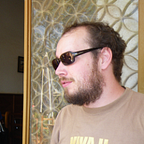Who’s Dumping the Corpses in Africa’s Lake of the Dead?
Forty bodies turn up in Lake Rweru
Bodies are bobbing to the surface in Lake Rweru, between Rwanda and Burundi. Lots of bodies. It’s likely we’ll never know for sure who’s to blame. But we can make some educated, and chilling, guesses.
“We were throwing our nets when we spotted something which looked like a plastic bag floating,” a Burundian fisherman told The East Africa. “Upon opening it, we found three decomposed bodies. The victims were naked and tied with ropes.”
Lake Rweru straddles the border between Rwanda and Burundi in East Africa. Locals said they have seen around 40 bodies in the lake since July. The corpses’ limbs were bound with ropes. Some were naked and already partly decomposed.
The dead — both male and female — were apparently in their 20s and 30s.
Their identities and origins remain a mystery. Authorities have recovered only four of the bodies — and buried them without conducting autopsies, because Burundi doesn’t have the facilities to store the corpses.
Officials from both countries say none of their citizens is missing.
Known modus
We can’t rule out either country as the source of the dead. And whichever country produced the bodies, the actual cause of the victims’ deaths is very likely political in nature.
Burundi has had similar cases in the past few years, when opposition politicians turned up dead and floating in rivers. Political activists suffer frequent attacks and suppression at the hands of the regime of president Pierre Nkurunziza, who is gearing up for elections in 2015.
But many of those who saw the bodies have said that the river Nyabarongo, which originates in Rwanda, carried the corpses into Lake Rweru. According to one report, the river normally terminates in a swamp, which would have swallowed the corpses.
But the swamp is dry due to a recent drought, so the bodies floated onward into Lake Rweru.
If this is true, it could mean that Rwanda’s leadership at least tolerated the murders. Rwandan intelligence services and police are infamous for their close-knit networks of snitches. Somewhat unusually for an African state, the government in Kigali is highly organized, right down to the local level—and even has access to a biometrics database of all citizens.
It’s highly unlikely that the Rwandan police force—whose commissioner general once convincingly boasted to War is Boring that his patrolmen could even find a stolen laptop—wouldn’t notice 40 murders. It’s even more unlikely that the Rwandan security forces wouldn’t know the killers’ identities.
Similarly to his counterpart Nkurunziza, Rwandan president Paul Kagame is currently preparing for his country’s next presidential election in 2017. Kagame hasn’t yet declared his intention to run for a third term in office, which would necessitate an overhaul of the constitution.
But there are indications that he’s preparing for such a move. In recent years several prominent critiques of Kagame’s regime have been killed abroad and at home, while Rwandan authorities have arrested others on sometimes flimsy charges.
Lake Rweru’s dead might be other victims of this campaign to silence internal dissent.
Dozens missing
Human Rights Watch has reported that Rwandan security forces have disappeared more than a dozen people recently. The Rwandan Democratic Green opposition party meanwhile has urged the government to identify the bodies from Lake Rweru.
Perhaps not coincidentally, one of the party’s functionaries has been missing for several weeks.
Meanwhile, the governments of Burundi and Rwanda have announced a joint commission to investigate the deaths. So far investigators have released no results to the media.
After the U.S. State Department expressed its concern over the killings, Burundi asked for the FBI’s help in solving the murders. But if the bobbing bodies are the result of political violence, don’t hold your breath for good results.
